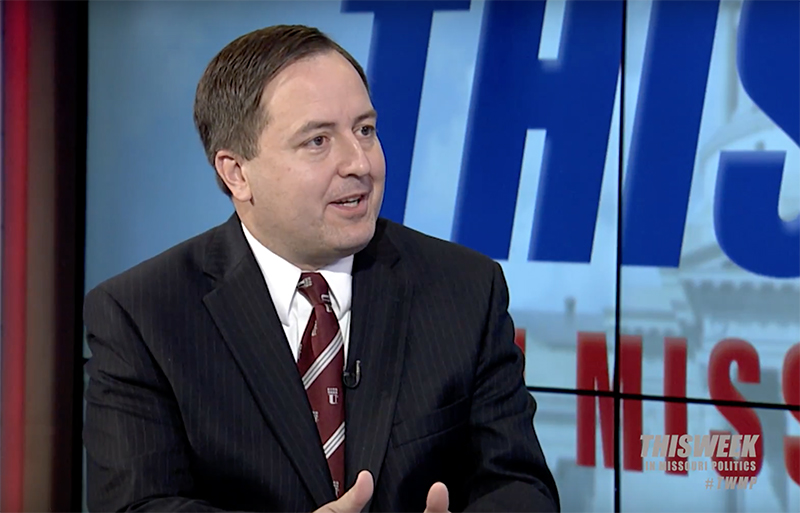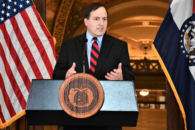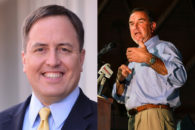JEFFERSON CITY, Mo. – Missouri Secretary of State Jay Ashcroft joined This Week in Missouri Politics Sunday to speak about voter ID, the voter information that was requested by the President, and more.
In an effort to dispel any false accusations or hyperbole in regards to the president’s request, Ashcroft tried to make things clear by defining what the request was actually asking for from the state.
“There was a commission set up by the president to look at our voting processes and look at what could be done better. They sent a request to every state asking for that information a state has about voters that’s public,” Ashcroft said. “They specifically said they only wanted public information twice. In Missouri that’s going to be things like your name, your address, your date of birth, the elections in which you’ve received a ballot and where you vote. It’s not going to have your party affiliation, it’s not going to have your social security number or any part of that, it’s not going to say how you voted either, we just know that you got a ballot.”
Emphasizing how a misunderstanding of information can exaggerate hyperbole and spread untrue details, This Week in Missouri Politics host Scott Faughn decided to investigate the severity of the request, if it was in fact as severe as some editorials had made it out to be.
By bringing a copy of the president’s letter to Ashcroft’s office and simply asking if he could have the information asked for in letter himself, Faughn was a given a CD containing all that the data that the state was allowed to collect and to give out. According to Faughn, it took about five minutes and it looked to be one of the most simplistic processes he has witnessed.
Questioning the methods of some individuals within the media, Faughn said that it would be easy for outlets to check out just how important something is by doing something similar to what he did.
Jumping off that, Ashcroft pointed out that all major media outlets have received this data multiple times over the last ten years.
“This is part of Missouri’s Sunshine Act,” Ashcroft explained. “Anyone that requests in writing this public information and pays a nominal fee, they have to agree not to use it for commercial purposes, and we give it out. It’s been given out a thousand times in the last ten years.
Both went on to talk about the media and its disposition towards the president. Agreeing that there are many things the American people should question regarding the President’s actions, but the media continues to discredit itself when it puts its blatant opposition before what is objectively true, thus creating a credibility cap.
“I think, unfortunately, our politics have gotten so divisive that when something comes up, people immediately run to their side of the political arena,” Ashcroft said. “It can definitely happen in both parties. They don’t actually look at what’s happening, they just run to their media voice and get outraged.”
Ashcroft continued by stating that he works for the people and not against them and if the governor were to lead a legislative effort to change the law where they don’t give this information out to the federal government he would comply.
Addressing what he thought should have been the main topic of the conversation, Ashcroft brought up as to what exactly should be public information.
“If the politicians has access to that data, everyone should have access to that data. I don’t think we should be playing favorites and saying ‘I like you, I’m going to let you have the data but not you,’” Ashcroft said.









